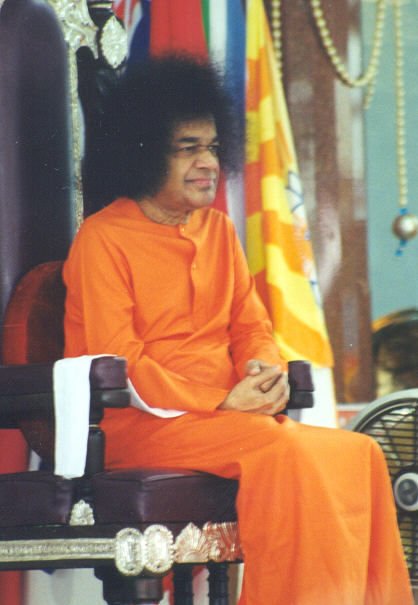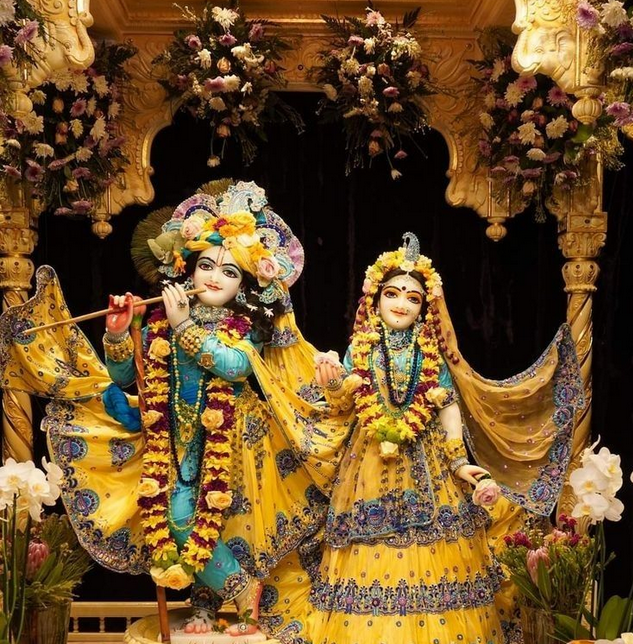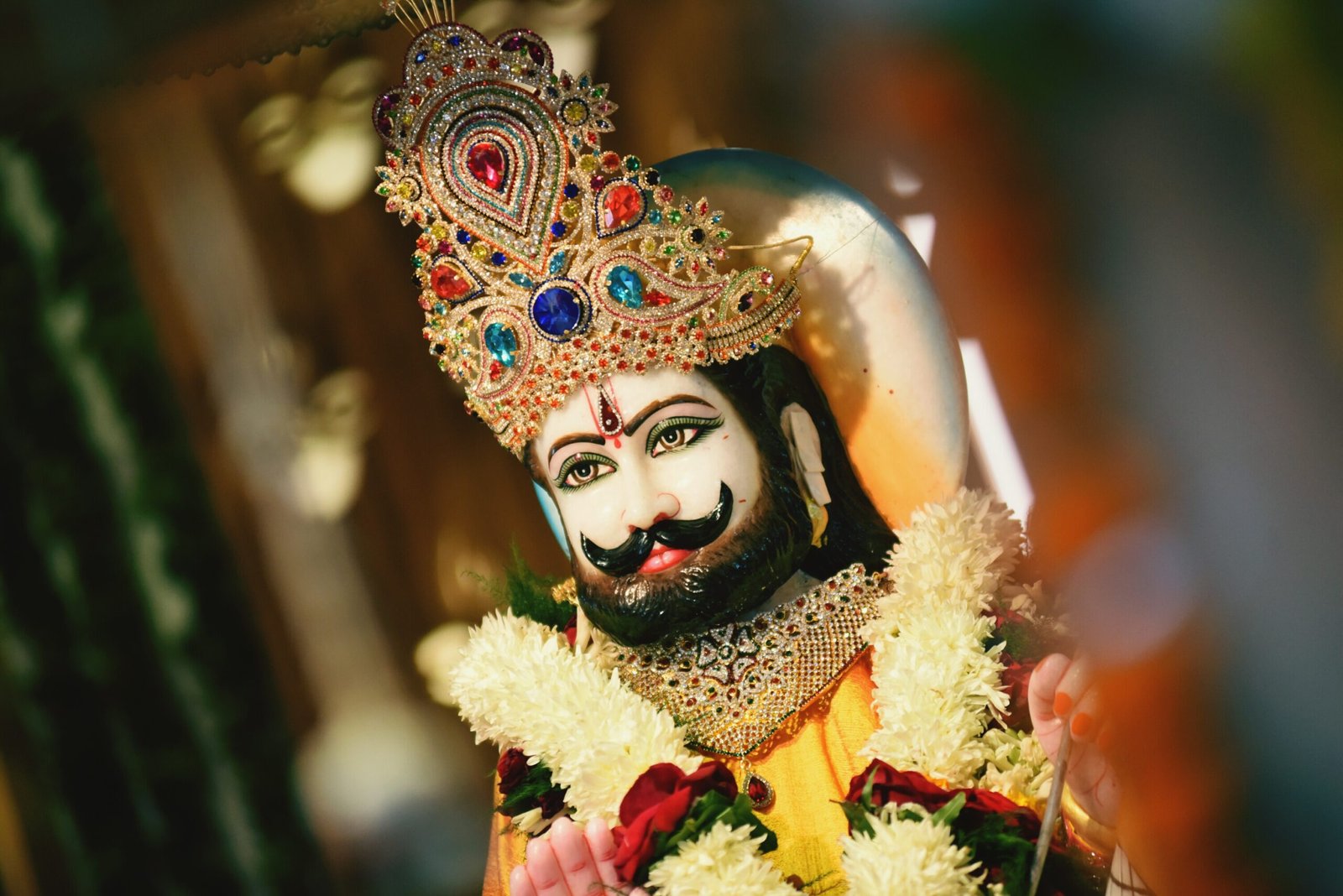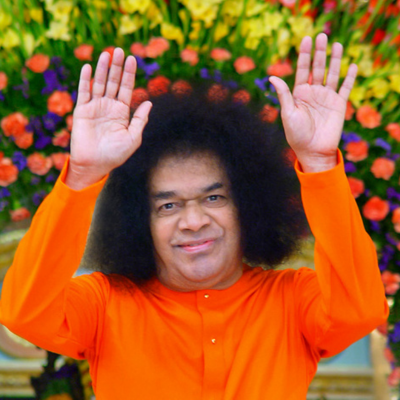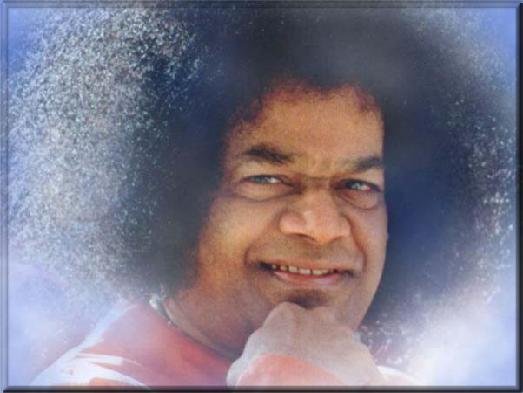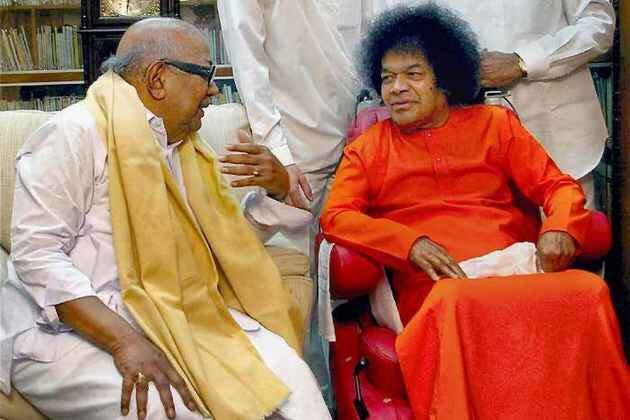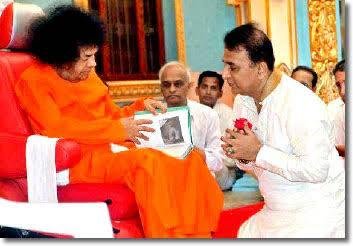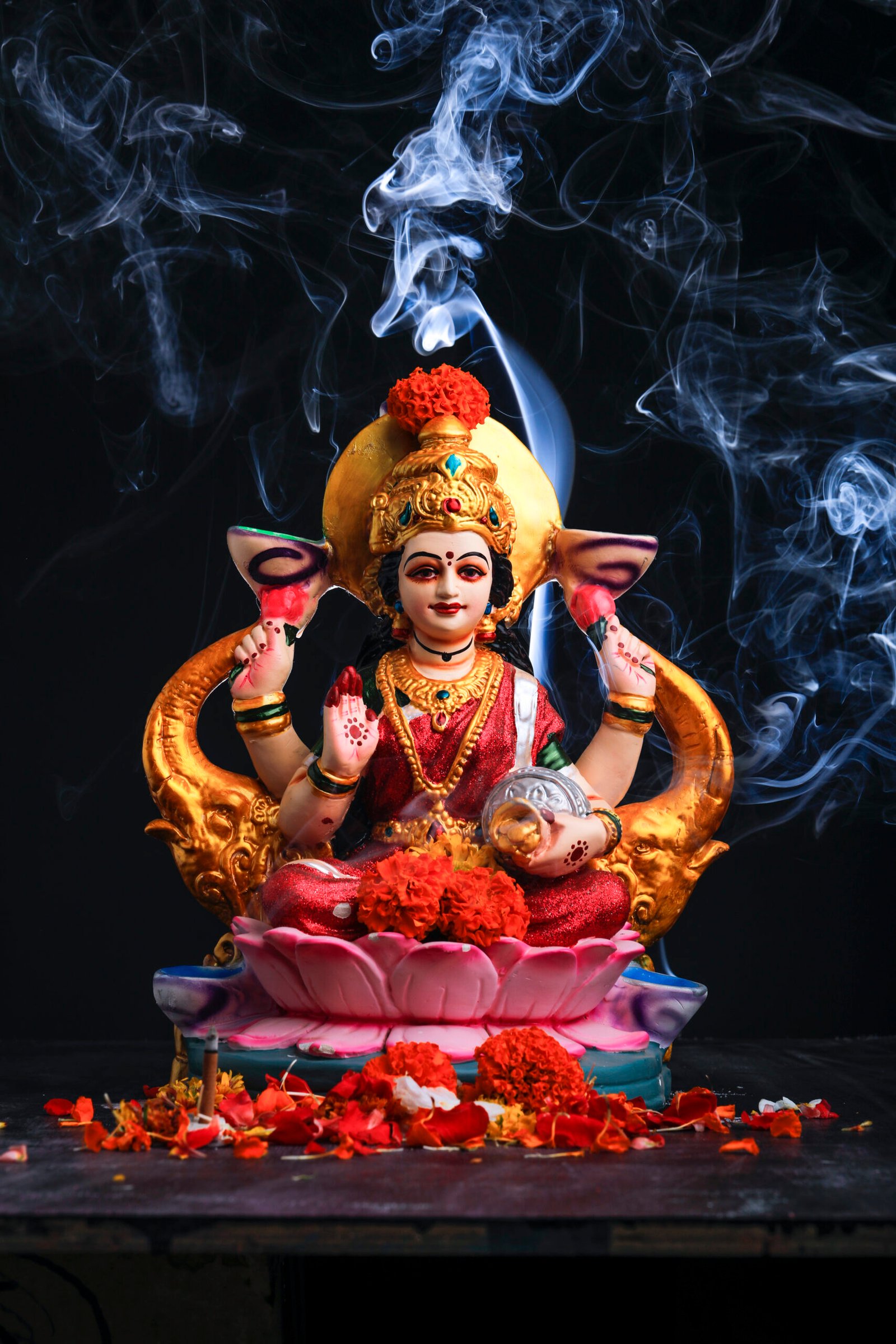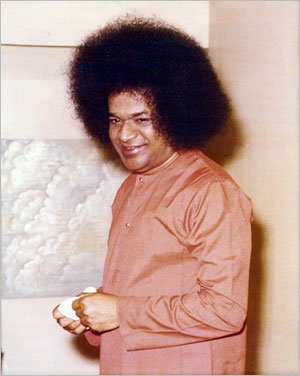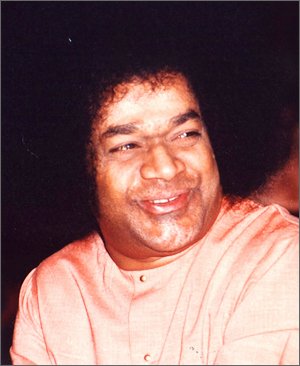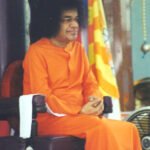CONVERSATIONS WITH SAI – PART Twelve
CONVERSATIONS WITH SAI – PART Twelve
Hislop:┬ĀWhen you go out in the world, very likely you will get married. How will you relate to your wife?
Student:┬ĀSwami will have given me my wife. Swami is my spiritual father and mother, and in the real sense I am born of Him. He is God, and my wife is not different from Him. He is in her heart also. So I will regard my wife as mother, sister, and God.
Hislop:┬ĀWell, I have heard that Mother and Father are to be regarded as God. But this is the first time I have heard that one’s wife is to be regarded as God. I believe you are going to face some problems in this matter.
SAI:┬Ā(To Hislop in Telugu via another student)┬ĀAsk him what he will do if his wife says he cannot come to Puttaparthi?
Hislop:┬ĀYou know, sometimes a wife develops a very strong personality and takes command of the family. Suppose such a wife says to you, ‘You must not go to Puttaparthi.’

Student:┬ĀIt is God that I obey, not the wife as such. I would go to Puttaparthi.
SAI:┬Ā(In another aside to Hislop) Ask him what if his wife says she would leave him.
Hislop:┬ĀThe wife is one body and mind. Swami is another. The wife has her independent viewpoint. You tell her ‘I will go to Puttaparthi. You may stay here.’ But wife says to you, ‘You will not find me when you return. I will leave you.’
Student:Such a wife is not my wife. I would go to Puttaparthi. She may go according to her own decision.

SAI:┬ĀAsk the boys some questions┬Ā(the college boys were outside in the compound circled around Sai).
Hislop:┬Ā(to student)┬ĀWhat do you want?
Student:I want Swami.
Hislop:┬ĀI mean after you graduate and go out into life.
Student:┬ĀI want Swami.
Hislop:┬ĀWho is Swami?
Student:┬ĀHe is Love. He is God.
Hislop:┬ĀWhere is Swami?
Student:┬ĀIn my heart.
Hislop:┬ĀBut you see Swami’s body. How do you see Him as God?
Student:┬ĀWe have confidence that He is God.
Hislop:┬ĀWhere is God?
Student:┬ĀGod is everywhere.
Hislop:┬ĀWhen you look at that tree, what do you see?
Student:┬ĀI see God.
Hislop:┬ĀHow does this faith arise that God is everywhere?
Student:┬ĀThere is some small experience of Swami. Then there is faith.
SAI:┬ĀNo.┬ĀFaith comes first and then experience.┬ĀStudents must not only know the answers to questions. The answers must be in the conduct of their lives, and on this basis they must teach others. Faith is natural to each person. Each person has some faith in himself, some confidence in himself. And the core of his being, of himself, is┬ĀAtma. From this comes the foundation of faith in himself.
A small example. One does not remember his birth and his mother tells him the date. He does not know by himself, but through faith he accepts what mother says. Father may not have been present at the event, but mother gave birth. She does not need to ask anyone. Some reflection will indicate that for the coming into being of the universe there must also be a basis. God is that basis. He knows. He need not ask anyone. In that subtle area, beyond body and intellect, only faith can exist. Faith is naturally with each person, and so also is love. Love is directed to various objects and to various persons, but love of God is the essential factor. Looking at that tree we note that the many branches, leaves and twigs have the one trunk as the factor common to all of them. The trunk, in turn, relies on the roots. To try to water each leaf and each branch would take much time, and the water would be wasted. But if we direct all the water to the roots of the tree, then each branch and leaf and twig will naturally receive moisture in the way that is best for it
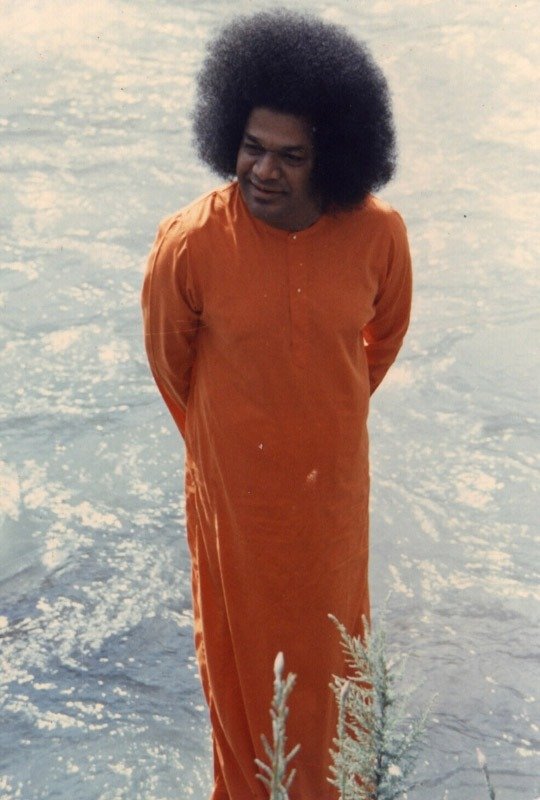
SAI:┬ĀSai gives them confidence. With confidence the words arise automatically.┬Ā(To a college boy)┬ĀWhat do you want when you finish college?
Student:┬ĀI want only to merge with Swami.
SAI:┬ĀNow the┬ĀAvatar┬Āhas taken a body to revive┬ĀDharma. He is here, engaged in that. So what is all this talk of immortality and merging? Your whole life is before you. First, find out what is the purpose of this life.┬ĀIf God Himself is here to foster┬ĀDharma┬Āand you engage yourself in the same task then you are worshipping Him. Then you are near and dear to Him, for you are serving Him, His devotees, and yourself.
Hislop:┬Ā(at Prashanti Nilayam)┬ĀSwami, what is that new construction on the other side of the sheds?
SAI:┬ĀThat is an oil pressing plant. Farmers in this area can bring their groundnuts and press out the oil free of charge.
Hislop:┬ĀI had heard that Swami was making a cottage industry for the villagers in these large sheds, but I did not know about the farmers.
SAI:┬ĀThe┬ĀGokulam┬Āis also a model dairy to show the farmers. The cottage industry is to free the villagers from their poverty by showing them how to work and have an income from work.
Hislop:┬ĀThat large shed beside the new High School that Swami is building, what is that for?
SAI:┬ĀThere the students may learn skills to help them in a practical way. How to fix machines, carpentry, electricity, plumbing, construction of buildings and so on.
Hislop:┬ĀWill that be a feature of all the schools that Sai builds?
SAI:┬ĀYes. Girls will learn sewing and household skills.
CONVERSATIONS WITH SAI – Part Thirteen
SAI:┬ĀTo beg from an equal puts you down and him up.┬ĀBut to ask God, you rise up to His level.┬ĀYou must ask God. To ask God is perfectly all right. It is not begging.
Hislop:┬ĀBut I had thought that since God knows each problem, that if it was appropriate to remedy the trouble God would do so without being asked.
SAI:┬ĀImportant answer! No. It is your duty to ask God. Words must be spoken, and the words must correspond to the thought.┬ĀThe thought must be put into sincere speech. It is correct that Divinity is Omniscient. But He requires that sincere words be spoken. The mother may know the child requires food to maintain life, b ut milk is given when the child asks for it.
Hislop:┬ĀIt is not clear when one should ask God and when one should not. For example, there is a headache that doctors seem unable to cure. I do not ask Swami to cure the headache; I do not pray for a cure. However, in a letter, Swami wrote; ‘How is your health? Do not worry about that. Your God is always with you, in you, around you’.
SAI:┬ĀThat is right. What Baba said is enough. For you, body identification is weakening. You have a headache today, a stomach pain tomorrow. Let it go. Don’t worry about it. You are not the body. Once Baba has told you not to worry, there is no need to ask Him about it. Don’t identify.
Hislop:┬ĀDoes Swami mean that for those persons still fully identified with the body, a continuous headache might be a proper subject for prayer?
SAI:┬ĀYes, but why bother Swami about a mere headache. You may tell others the same.
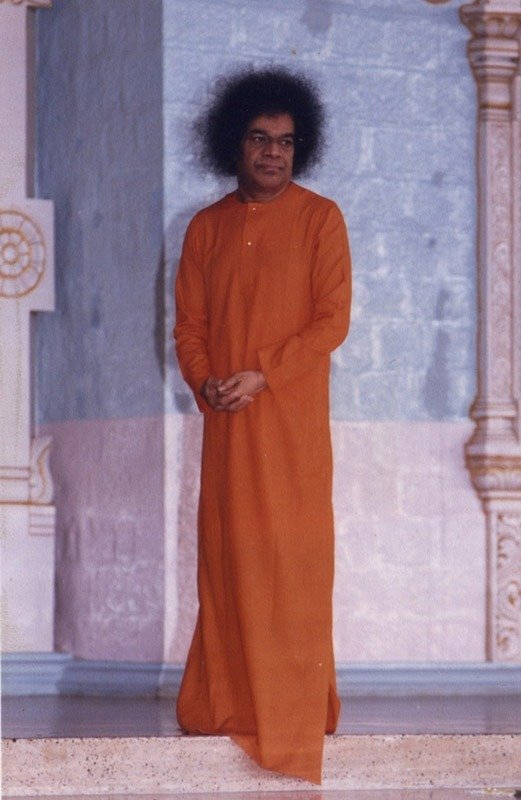
SAI:┬ĀGod should be asked for help when there is a real need┬Ā. A child asks his parents for a peppermint sweet, and the parents oblige. When older, the child asks for property from the parents, and it receives this. It is by right that the child asks, and it is by right that it receives.┬ĀA child may ask a stranger for a peppermint once or twice and expect to get one. But if he asks for property from a stranger he will not expect to receive anything. But God is not bothered by a multitude of small requests, and He will certainly give property (things of great value). Therefore, one should always ask God to meet oneŌĆÖs needs. It is the individual’s right to ask. There is no question of begging.
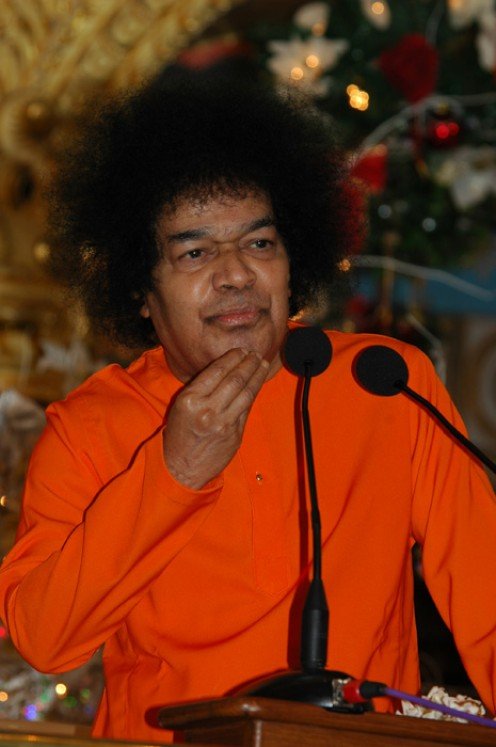
Hislop:┬ĀSwami said that in praying to God, the petitioner raises himself to the level of God. In order to make such a prayer, in what state or condition should one first put himself?
SAI:┬ĀIt is not necessary to put oneself into any particular st ate of meditation.
Hislop:┬ĀUsually, the idea is that one should go to a quiet place and be in a quiet mood when one wishes to pray.
SAI:┬ĀWhenever and wherever you put yourself in touch with God that is the state of meditation.┬ĀYou may feel that 1 p.m. in California is not a good time to call Me, for I may be asleep in India and that I should not be disturbed. I know you have felt like that once or twice. But,┬ĀI am omnipresent; I have no such limitations. I never sleep. At the middle of the night, I turn off the light and rest in bed, because if the light is on, devotees will gather. I have no need of sleep.┬ĀBut you need at least 4 hours of sleep.
Hislop:┬ĀIf I am walking in the street, with people around, and my mind is engaged with things I must do, is that a good time for prayer?
SAI:┬ĀAt the beginning, one might need some special set of circumstances for clearing the mind for concentration on God. But in a little time, if one finds that God is omnipresent and becomes aware of Him, and one’s thoughts are centered on God, then no matter where you are, it is the same. The prayers may be addressed to God and will reach Him.
Hislop:┬ĀIf a person does not have any material or worldly needs, then what is the proper subject for prayer?
Hislop:┬ĀI am surprised. I thought Swami said that peace of mind has to be secured by oneself working on his desires and getting rid of them. And now Swami says we can pray to Him for peace of mind!
SAI:┬ĀHow can you be free of desires?┬ĀAt this moment you are with Swami, and you are free of desires.┬ĀAs soon as your wife has a pain, you have the desire that she should be well, and you pray to Swami to cure her. At any time, a desire may come up; and then where is your peace of mind?┬ĀWhereas, if God answers your prayer for peace of mind, He must, by having granted that boon, automatically fulfil your needs and desires.
First you want a chain from Baba, next day you want something else – a ring. Both are made of gold.┬ĀWhy not ask for gold and then you can have everything you want from the gold.
Hislop:┬ĀWhen Swami says, ‘peace of mind,’ what is the meaning He gives to that phrase?
SAI:┬ĀThere is some small confusion in terms, for┬Āthere is no mind as such. Mind is a web of desires. Peace of mind is ‘ no desireŌĆÖ, and in that state there is no mind. Mind is destroyed, so to speak. Peace of mind really means purity, complete purity of consciousness. All spiritual practices are aimed at purification of the heart.
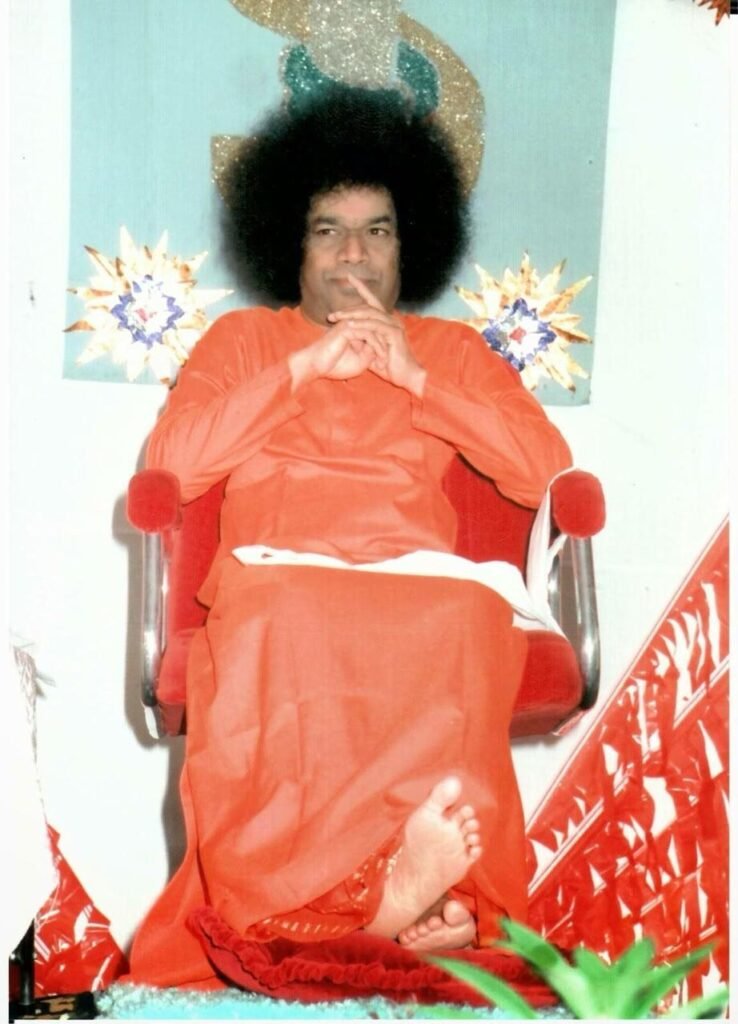
SAI:┬ĀBaba will delay until a further base is built in America . However, I can go informally anytime. The devotee need only call me and I will appear at once. Swami has his work to renew India . This must be finished before he is willing to do the same in a foreign country. People generally go to a foreign country with a desire of some sort. Baba has no desire. Of course foreign individuals come to Baba.
Hislop:┬ĀWhat is the most subtle point of Swami’s teaching, and then in the circle around that point, what are the things to do in order to realize that most subtle aspect of His teachings?
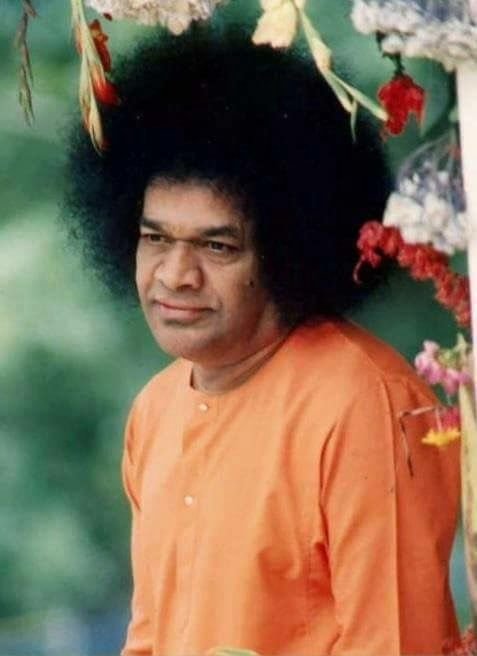
SAI: The most subtle aspect of Swami’s teaching is love. The circle around that subtle point, in order to realize it, are the spiritual practices such as meditation, repetition of the Name of the Lord, talking with good people, directing the mind away from harmful thoughts and so on. In themselves these spiritual practices are of no value. The only thing of real value is love itself.
In dealing with people, Swami looks to the good and ignores the bad so as to intensify the good. Swami’s teaching is, in a way, just as when you go to buy sugar in a shop, you do not bother about all the other details of the shop; the history and character of the shopkeeper, his personal relationship with other people, his personal looks, whether he is tall or short, old or young, and so on.
The central part of Swami’s teaching in regard to living in the world is to see in other people that essential quality which is God and to love that quality and not to be bothered by all the actions, qualities, misbehaviour, and characteristics of the person.
So in one case the doctor is severely wounding a person and getting praise; and in the other case, a labourer merely scratches someone and ends up in jail. The important issue is the intention of the person. Sometimes Swami finds it advisable to operate on someone that is to wound him, to say something that may hurt him, or to reveal his bad points instead of just looking at the good points. But when Swami does that, the intention behind it is that of helping, and not of hurting or harming the patient.
SAI:┬ĀPeople often think they have to be perfect themselves before they can help anyone else, but such is not the case. If one has a fault or certain weakness, one can point out to others that same weakness that is in oneself.┬ĀAnd if someone replies, ‘Before you tell me how to behave, why don’t you behave correctly?’ Then one could say that he knows the pain of behaving in this way and he hopes that the other person could avoid the same trouble that he experienced. In that way, not only is the difficulty in oneself helped to be overcome, but others will be helped as well.
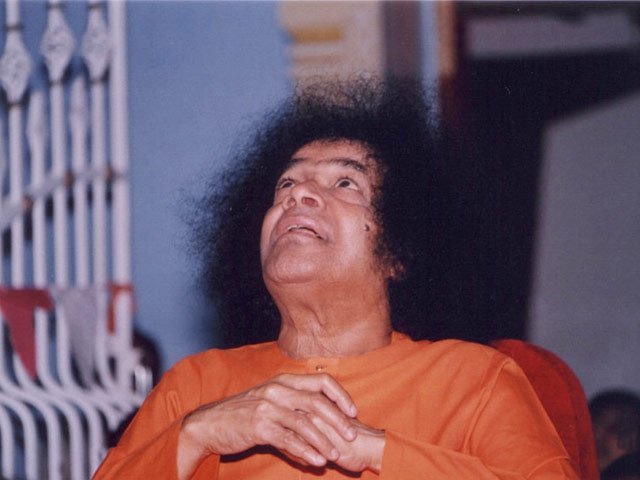
If a person has the humility to recognise a fault in himself and admit that fault, then others will be helped thereby and also oneself.┬ĀTo pretend that one is perfect, to tell people how to behave, pretending that oneself behaves in a perfect fashion and that one is perfect, is a great sin. Not because it harms other people, but because it seriously harms oneself.





